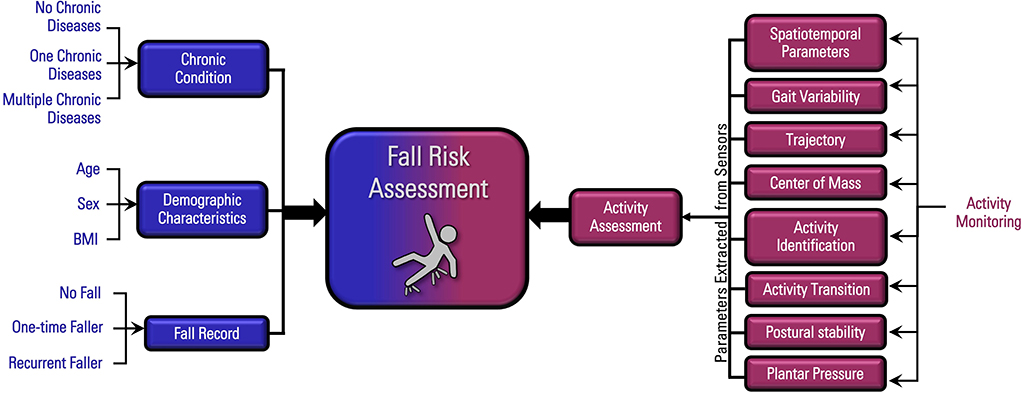Facts About Dementia Fall Risk Revealed
Table of ContentsThe 45-Second Trick For Dementia Fall RiskAll about Dementia Fall Risk9 Easy Facts About Dementia Fall Risk ShownThe Of Dementia Fall RiskTop Guidelines Of Dementia Fall Risk
You could be nervous because you've had a fall before or due to the fact that you have actually discovered you're starting to feel unsteady on your feet. You may have observed modifications to your health and wellness, or simply seem like you're reducing a little. Whatever the factor, it isn't uncommon to end up being cautious and lose self-confidence, and this can quit you doing things you utilized to do and make you feel much more separated.If you have actually had a loss or you have actually started to feel unstable, inform your medical professional also if you feel fine or else. Your doctor can check your equilibrium and the method you walk to see if renovations can be made. They might be able to refer you for a falls threat analysis or to the drops avoidance service.
This information can be gotten with interviews with the individual, their caregivers, and a testimonial of their medical records. Begin by asking the specific about their background of falls, including the frequency and situations of any type of current drops. Dementia Fall Risk. Ask about any kind of mobility problems they may experience, such as unstable or trouble strolling
Conduct a comprehensive evaluation of the person's drugs, paying particular focus to those recognized to boost the danger of drops, such as sedatives or medicines that reduced high blood pressure. Figure out if they are taking multiple medications or if there have actually been recent adjustments in their medicine routine. Review the person's home environment for prospective hazards that might raise the danger of drops, such as inadequate illumination, loosened carpets, or absence of grab bars in the restroom.
The 6-Second Trick For Dementia Fall Risk
Overview the person with the fall danger analysis kind, clarifying each inquiry and tape-recording their feedbacks properly. Determine the overall risk rating based on the reactions supplied in the evaluation form.
This strategy might consist of workout programs to enhance stamina and balance, drug adjustments, home alterations, and referrals to other specialists as required. Frequently monitor the individual's progress and reassess their threat of drops as required. Customize the care strategy based on changes in their wellness condition or home environment. Give continuous education and support to promote safety and security and minimize the risk of drops in their everyday living tasks.
Many research studies have shown that physical treatment can assist to lower the risk of falling in grownups ages 65 and older. In a new research (that checked out drops risk in ladies ages 80 and older), scientists calculated the financial influence of picking physical therapy to stop drops, a fantastic read and they discovered that doing so conserves $2,144, including all the covert expenses of your time, discomfort, missed life events, and the dollars spent for solutions.
The Main Principles Of Dementia Fall Risk
Inspecting your heart rate and Recommended Site high blood pressure dimensions at remainder and while you turn (from sitting or lying to standing). An easy test of your thinking (cognitive) capabilities. Examining your balance, strength, and strolling capacity. A simple vision test. Assessing your feet and shoes. A home safety and security evaluation. Based on the examination results, your physiotherapist will create a strategy that is tailored to your details demands.
Older adults that have difficulty walking and chatting at the exact same time are at a higher danger of falling. Dementia Fall Risk. To help raise your safety and security during everyday activities, your physiotherapist might make a training program that will test you to keep standing and strolling while you do an additional job. Examples consist of strolling or standing while counting backward, having a discussion, or carrying a bag of groceries
Set objectives for increasing their physical activity. Work out more to enhance their strength and equilibrium. These programs often are led by volunteer trainers.
A Biased View of Dementia Fall Risk

Measles, or rubeola, is a very infectious, acute viral infectious condition triggered by the measles virus. Some individuals consider measles as simply a breakout and high temperature that cleans up in a few days; nevertheless, measles can trigger significant health problems, particularly in youngsters more youthful than 5-years-old. The most effective defense versus measles is the measles, mumps, and rubella (MMR) vaccine.
Falls have a peek at this website are a typical reason for injury amongst older grownups. According to the CDC, in one year alone, fall-related injuries added to over $50 billion in medical costs (Dementia Fall Risk). In healthcare facility setups, older adults are at especially high danger of falls since their minimized mobility from being constrained to an area or bed.
Dementia Fall Risk - The Facts

She has no history of drops, her gait is stable, and she voids with no concerns. The previous nurse states that she calls for aid to the shower room when she needs to go.
Instances of usual fall interventions/measures consist of: Making certain an individual's necessary items are within reach. Placing the patient's bed rails up with the alarm system on. Assisting an individual while they're standing up from bed. Past comprehending just how to use the Johns Hopkins Loss Risk Evaluation Device, it is essential that centers incorporate its usage into an extra detailed loss prevention plan.